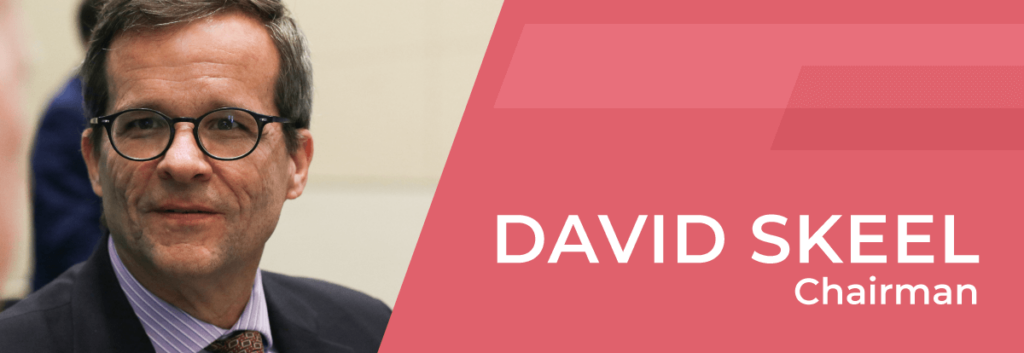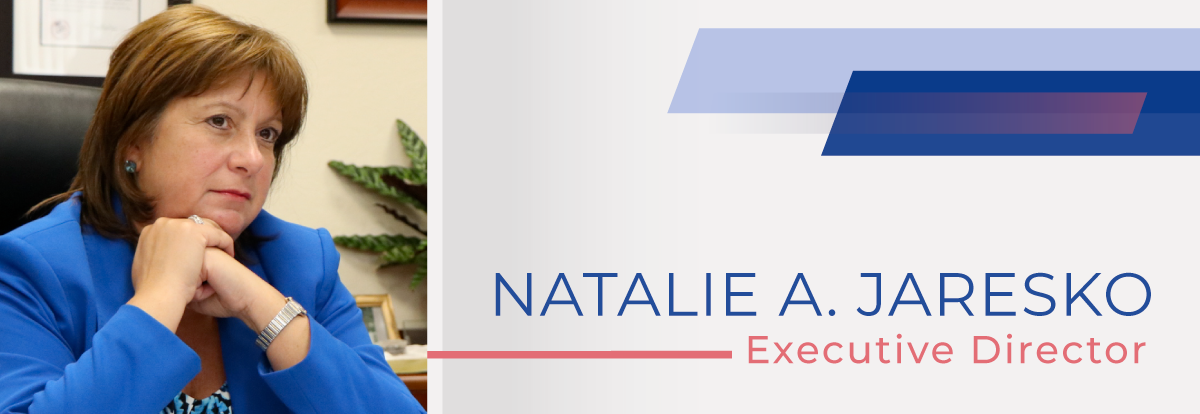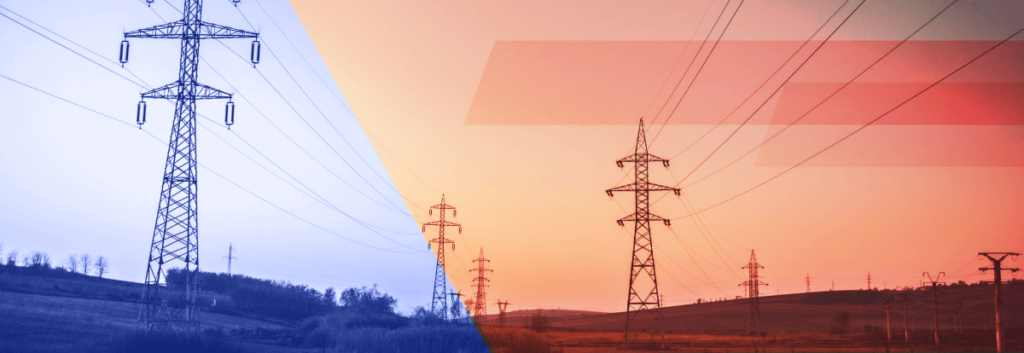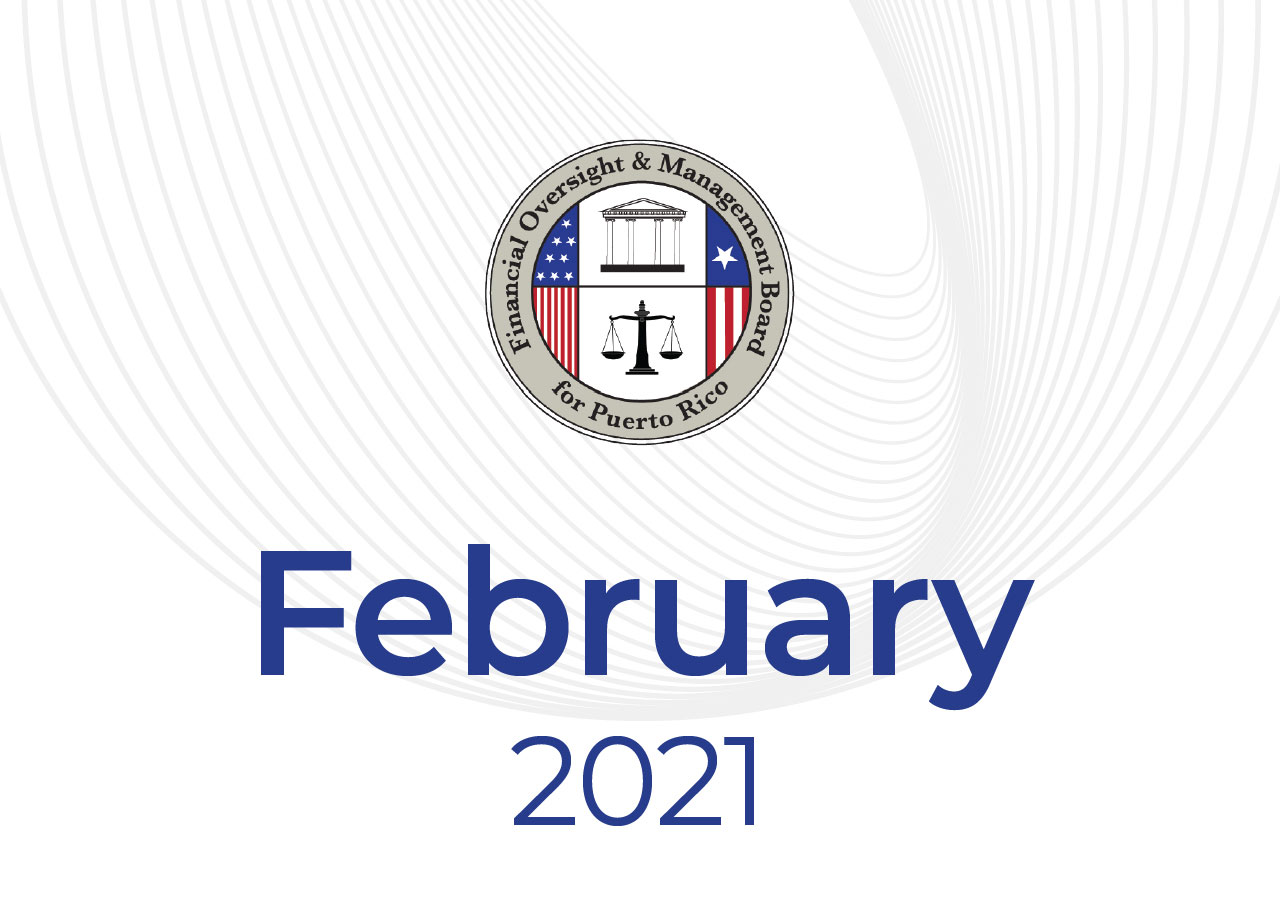
After the calamitous events of last year, from the earthquakes in January to the worldwide pandemic, 2021 brings an opportunity both for a fresh start and to complete some of the Oversight Board’s most important tasks, such as restructuring Puerto Rico’s debt. We also hope to see continued progress in the transformation of PREPA and in the quest to bring increased transparency and fiscal responsibility.
As Puerto Rico faced another round of natural disasters early last year, the Oversight Board focused first on making immediate financial assistance available for the people of Puerto Rico. We then carefully assessed the long-term effect of the pandemic and considered how to reduce its impact on the Puerto Rico economy. In May and June, we certified responsible and sustainable Fiscal Plans and budgets for Puerto Rico and its government entities, based on our extensive analysis of the likely effects of COVID-19 on Puerto Rico’s government, its people, and its businesses.
Only then did we turn our attention back to Puerto Rico’s debt

Before the COVID-19 crisis hit last March, we had reached tentative agreements with large numbers of creditors of the Commonwealth and PREPA. But COVID-19 dramatically changed the picture. We needed to ask the U.S. District Court for the District of Puerto Rico to temporarily put the agreements on hold until we could reassess where Puerto Rico stands.
Although Puerto Rico’s capacity to repay its debt has changed due to the pandemic, our objective in the debt restructuring process has not. Since there is no legal path to simply erasing Puerto Rico’s debt—nor would this be fair to the creditors who lent money to Puerto Rico—we are committed to reducing the payments on Puerto Rico’s debt to a level that is affordable and sustainable, both now and in the future.
There are four key principles for achieving such a restructuring
- First, consensual is better. The more classes of creditors vote in favor of our proposed restructuring, the smoother our path is likely to be and the less money we have to spend on costly and lengthy litigation we will likely face.
- Second, adjust to reflect the new reality. The effects of COVID-19 on Puerto Rico are severe. Puerto Rico cannot afford to pay its creditors amounts that would have been reasonable one year ago. The restructuring we achieve needs to reflect this reality so that Puerto Rico’s repayment obligations do not cripple Puerto Rico’s economy going forward.
- Third, meet PROMESA’s requirements for a fair deal. Two of PROMESA’s most important fairness requirements are that the restructuring is “feasible,” that is it has to be affordable and sustainable for Puerto Rico, and that it be in the “best interests” of the creditors as a whole.
- Finally, a “once and done” deal. From day 1, the Oversight Board has set its sights on an agreement that is affordable for Puerto Rico not only today and tomorrow but for years to come. That’s why the Fiscal Plan provides projections of the government’s expenses not just for a year or two, but for as long as it will take for Puerto Rico to pay off the reduced amounts of its debt.
We do not believe Puerto Rico can default and restructure its debts more than once. Businesses sometimes file for bankruptcy a second time, and a few countries like Argentina have restructured their debt more than once. But for Puerto Rico, a future default would be disastrous. It would be disruptive and would interfere with important initiatives the government may wish to undertake. Indeed, Puerto Rico may not even have access to PROMESA’s restructuring provisions after the Oversight Board is dissolved in a few years.
The people of Puerto Rico also deserve to know exactly how much they will need to pay creditors, and creditors need to know what kinds of payments they will receive. Most of Puerto Rico’s creditors have not received a single penny for more than four years, since PROMESA was enacted in June 2016 and in some cases before. It is only fair that they start getting paid some of what they are owed.

Puerto Rico’s bankruptcy needs to be resolved as soon as reasonably possible, and we expect to file an amended plan of adjustment soon. We think the amended plan will be a realistic proposal that will be sustainable for Puerto Rico and will open a path to recovery and prosperity.
I give you my best wishes for a healthy and happy 2021. I pray that the outlook will get better and better as the year goes on.

This new year is a year of change for Puerto Rico. The arrival of the COVID-19 vaccine to fight the pandemic and protect Puerto Ricans’ health, a newly elected Governor and Legislature that will hopefully move forward resolutely with the reforms necessary to improve life in Puerto Rico and resumed negotiation with creditors to lower Puerto Rico’s debt have already made for a decisive start into 2021.
In the first week of January, the appointment process concluded, and the seven-member Oversight Board is now complete again. Three members – Professor David Skeel, Andrew Biggs, and Judge Arthur González – have been part of the Oversight Board since its inception in 2016, and four new members will give the Oversight Board a range of new voices and perspectives: Antonio Medina Comas, John Nixon, Justin Peterson, and Dr. Betty Rosa. Together, as Chairman Skeel said, the members bring significant expertise in the areas that matter most to Puerto Rico’s recovery, ranging from education to pensions, from bankruptcy to fiscal sustainability and business development.
The holidays are a time for contemplation about what was accomplished and what lies ahead. This year, looking back is painful. The effect of COVID-19 has been severe, on our nation, on Puerto Rico, and on all our individual lives.
But Puerto Rico did not stand still, despite the shutdown and the health crisis
To me, three accomplishments in 2020 were particularly important
First, the Governor and the Oversight Board responded rapidly with an emergency response package of almost $1 billion to fight COVID-19 and help those affected by the pandemic and the economic consequences. Together, we were able to help frontline workers, and small businesses, hospitals, and schools – even before the U.S. Government passed its CARES Act. We did not have the ability to put together such a substantial emergency package after Hurricane Maria. This is what fiscal responsibility means: The ability to prioritize spending and to stabilize the government budget, so we can respond decisively and appropriately when there is a need.
The Fiscal Plan and this year’s budget went through considerable and careful revisions to reflect the pandemic’s effect on Puerto Rico’s economic reality. Many states and local governments around the United States had to implement painful budget cuts because of COVID-19, but the fiscal restraint of the last four years allowed the Oversight Board to not only suspend budget cuts this fiscal year but also to add substantial multi-year investments to stabilize and improve the health care system, improve the education system, and expand broadband access – all critical pain points broadly visible during the pandemic.

Second, for energy reform, 2020 was a year of significant progress. The Puerto Rico Public-Private Partnership Authority, PREPA, the Government, and the Oversight Board reached an agreement with LUMA Energy to transfer the management and operation of the electric grid, another step toward transforming Puerto Rico’s energy system.
PREPA is a source of concern for most people in Puerto Rico. Puerto Rico needs an energy system that provides more reliable, more affordable, and cleaner energy. LUMA is incentivized to improve the reliability of electricity, will ensure investments are made, and makes decisions based on sound planning and long-term strategies rather than political calculations. LUMA is a Puerto Rican company, with Puerto Rican workers, created as a joint venture between two companies that have proven track records of providing electric services efficiently and focusing on quality customer service.

Third, together with the Government, we established a new procurement process. Those new rules determine how the Government contracts for goods and services and how it pays for the goods and services provided through those contracts. Those procurement rules are a big step forward on our path toward restoring and institutionalizing fiscal responsibility.
The lack of proper rules and procedures in how the Government previously awarded contracts, bought supplies and other goods, and paid for services have resulted in serious irregularities. The new regulation approved in November establishes uniform, robust and sound procedures for government procurement, promote market competition, transparency, and accountability, all necessary steps on the path to fiscal responsibility.
We all expect a lot from 2021 – healing, stability, and progress. My hope is that we overcome the challenges of the painful year of 2020 and that we use the crisis as an opportunity to make serious improvements.
What I promise for 2021 is that the Oversight Board will continue to work with the Puerto Rico Legislature and Governor Pedro Pierluisi to implement the necessary reforms and institutionalize the fiscal responsibility that has allowed us to step up in times of tragedy and need, and to help us finally recover from the financial and humanitarian crises that have hindered Puerto Rico’s return to prosperity for so long.
The Oversight Board’s mandate and goals have not changed after Hurricane Maria or because of COVID-19. Let me be very clear: We are determined to take Puerto Rico out of bankruptcy and are determined to build a future for Puerto Rico with sustainable economic growth and a fiscally responsible government that spends money wisely and within its means. That is what the people of Puerto Rico deserve.
I wish you all a safe, healthy, and happy 2021.

